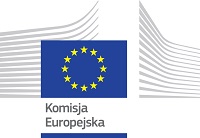DICTAPLOMACY investigates an understudied dimension of authoritarianism – the use autocrats make of diplomacy as a tool of regime-survival. The project analyses and compares the foreign policy strategies and “dictaplomatic” tactics of four ideal-typical authoritarian regimes in post-Soviet Eurasia, with the aim of modelling the mechanisms whereby diplomacy serves them for external regime-legitimation and authoritarian consolidation.
DICTAPLOMACY is a multidisciplinary project that combines insights and methods from comparative politics, international relations (IR) theories and foreign policy-making analysis. It elaborates an innovative framework for analysing rogue behaviour in contemporary IR. It departs from the idea that the EU’s democracy-promotion efforts in Eastern Europe require a better understanding of the foreign policy manoeuvres of post-Soviet authoritarian regimes.
DICTAPLOMACY is a policy-relevant project with a strong potential to entail cross-disciplinary fertilisation between scientific research and policy-advocacy work as well, thanks to the researcher’s planned secondment in a think tank.
The project is supported by the European Union


